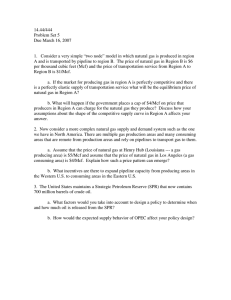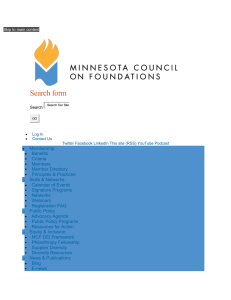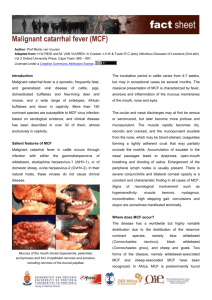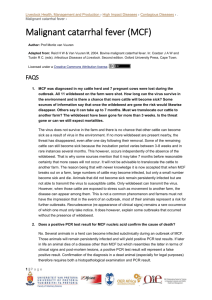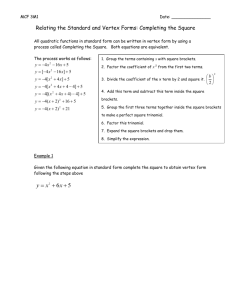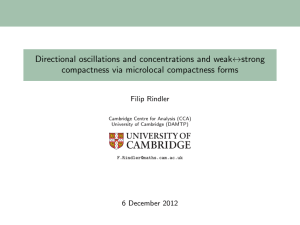Draft Memo on Estimated Grades
advertisement
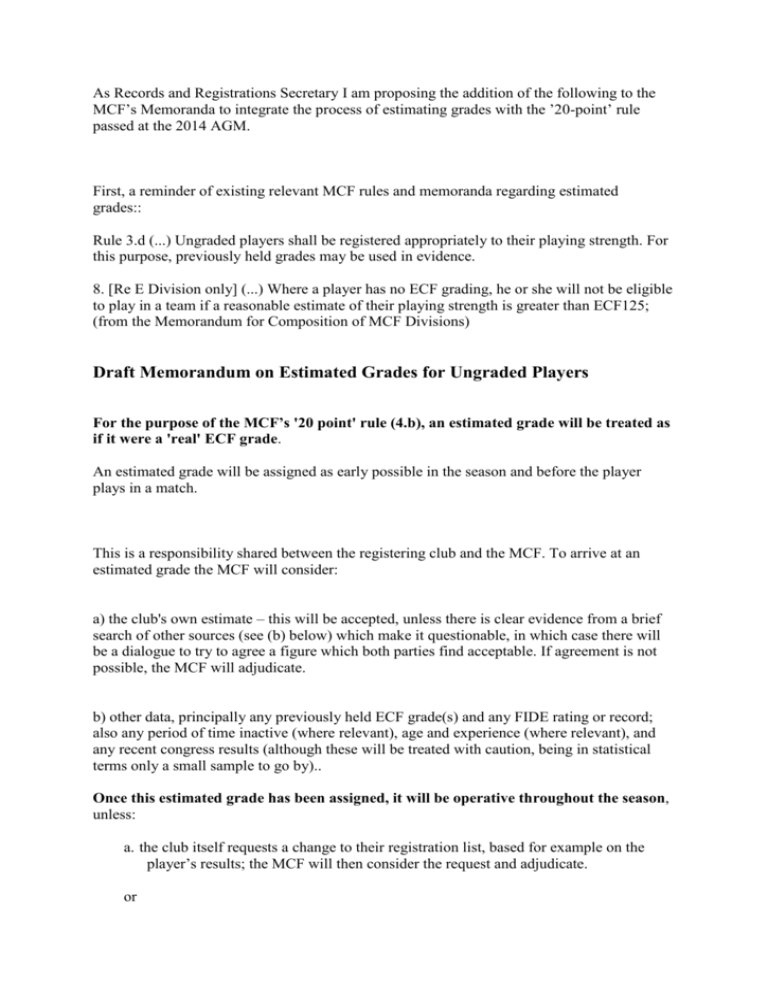
As Records and Registrations Secretary I am proposing the addition of the following to the MCF’s Memoranda to integrate the process of estimating grades with the ’20-point’ rule passed at the 2014 AGM. First, a reminder of existing relevant MCF rules and memoranda regarding estimated grades:: Rule 3.d (...) Ungraded players shall be registered appropriately to their playing strength. For this purpose, previously held grades may be used in evidence. 8. [Re E Division only] (...) Where a player has no ECF grading, he or she will not be eligible to play in a team if a reasonable estimate of their playing strength is greater than ECF125; (from the Memorandum for Composition of MCF Divisions) Draft Memorandum on Estimated Grades for Ungraded Players For the purpose of the MCF’s '20 point' rule (4.b), an estimated grade will be treated as if it were a 'real' ECF grade. An estimated grade will be assigned as early possible in the season and before the player plays in a match. This is a responsibility shared between the registering club and the MCF. To arrive at an estimated grade the MCF will consider: a) the club's own estimate – this will be accepted, unless there is clear evidence from a brief search of other sources (see (b) below) which make it questionable, in which case there will be a dialogue to try to agree a figure which both parties find acceptable. If agreement is not possible, the MCF will adjudicate. b) other data, principally any previously held ECF grade(s) and any FIDE rating or record; also any period of time inactive (where relevant), age and experience (where relevant), and any recent congress results (although these will be treated with caution, being in statistical terms only a small sample to go by).. Once this estimated grade has been assigned, it will be operative throughout the season, unless: a. the club itself requests a change to their registration list, based for example on the player’s results; the MCF will then consider the request and adjudicate. or b. the MCF becomes aware of clear evidence (such as a January ECF grade based on more than 10 long-play games) of a major discrepancy (defined as a difference of more than 20 ECF points) between the estimated grade and the player’s current playing strength. The case will then be discussed immediately with the club and promptly adjudicated by the MCF on its merits, chiefly with respect to its relevance to fair competition between clubs. Discrepancies with no significant fairness implications may be disregarded, as the system will self-correct over time. Any amendment by the MCF to an estimated grade will take immediate effect but will not be retrospective. The MCF will normally delegate all negotiations and decisions regarding estimated grades to its Records and Registrations Secretary, but clubs will retain a right of appeal to the MCF Council, whose decision will be final.. Proposed by Phil Adams MCF Records & registrations Secretary, February 22nd 2014
